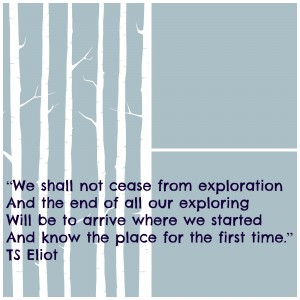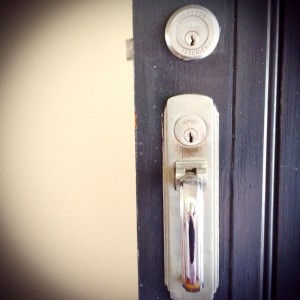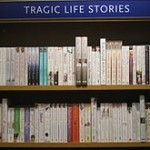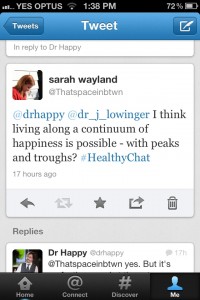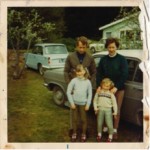TS Eliot shared those words. It was a line in the last section of the phenomenal movie Philomena. About the search within and the search outside for a woman who lost her son – through adoption and then through death. I raced home from the movies – eager to find the quote and to stare at it for a while.
In the last month I have transcribed over 50000 words of my PhD interviews with families who have lost a child or a sibling or a partner. In standing back and looking at their words I was struck by how, no matter what was shared we came back to the same place time and time again. That to live with loss is to live with pain. That to hope for a future meant that that hope would be without a person that was so wanted.
In counselling there are many moments of searching. Many questions where people are looking for ways to live alongside their sadness. Not to push it to the past but to travel in a pattern where they can move parallel to what has happened – the moment we ask people to achieve closure or to move onwards we ask them to forget what brought them to their sadness in the first place. Ingrid Poulsen explained to me that she doesn’t need to read the newspaper or watch the news to know that evil exists in the world – whether we engage in the viewing or reading or consuming of it, it still continues on regardless. When something traumatic happens to us it shapes the way we view the world. The nightly news doesn’t have to remind us.
New Years is always full of resolutions – its just a by product of one year ending and the new one unfolding. My goal this year is to be more open to hearing the stories of the journeys we all take when we walk along our sadness. To not be consumed by all the awfulness that happens in the world – to know it exists without it filling my lounge room. To write more of those stories for others to hear because when we become consumed by only the reporting of the evil or the tips as to how we ‘get past’ them we fail to hear the other pieces that come with it – the resilience, the darkness, the moments of life and the way hope might begin to seep back in to peoples lives.
We can search for many things in life when something catastrophic happens but we will always come back to ourselves, back home, back to what we know. We just might have learnt a few more things along the way.
Happy New Year to all my lovely friends out there in the online and real world. Thank you for letting me walk alongside you.
